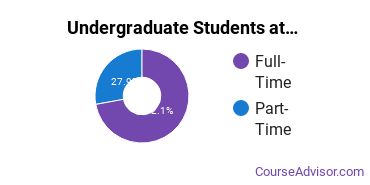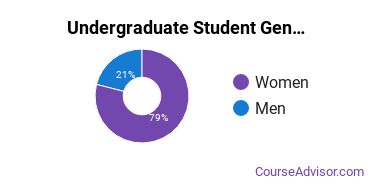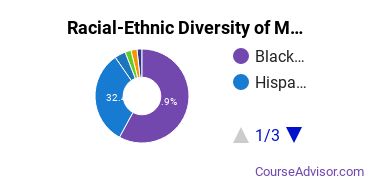Metropolitan College of New York Overview
Metropolitan College of New York is a private not-for-profit institution located in New York, New York. The city atmosphere of New York makes it a great place for students who enjoy having lots of educational and entertainment options.
What Is Metropolitan College of New York Known For?
- Although it may not be available for every major, the master's degree is the highest award a student can attain at MCNY.
- In a recent academic period13% of the faculty were full-time.
- Students who graduate from MCNY with a bachelor's degree make about $46,236 a year. That's 13% more than those who graduate from other schools.
- On average, it takes about 4.0 years for students from MCNY to earn a bachelor's degree. This is excellent when compared to the average of 4.4 years.
Where Is Metropolitan College of New York?

Contact details for MCNY are given below.
| Contact Details | |
|---|---|
| Address: | 60 West Street, New York, NY 10006-1742 |
| Phone: | 800-338-4465 |
| Website: | www.mcny.edu |
How Do I Get Into MCNY?
You can apply to MCNY online at: https://apply.mcny.edu/apply/
Admission Requirements for MCNY
| Submission | Required? |
|---|---|
| High School GPA | 1 |
| High School Rank | 3 |
| High School Transcript | 3 |
| College Prep Program | 3 |
| Recommendations | 3 |
| SAT or ACT Scores | 3 |
| TOEFL | 1 |
How Hard Is It To Get Into MCNY?
Approximately 46% of accepted students are men and 54% are women. The acceptance rate for men is 71%, and the acceptance rate for women is 62%.
Can I Afford Metropolitan College of New York?
Student Loan Debt
It's not uncommon for college students to take out loans to pay for school. In fact, almost 66% of students nationwide depend at least partially on loans. At MCNY, approximately 56% of students took out student loans averaging $7,011 a year. That adds up to $28,044 over four years for those students.
Explore Best Ranked Schools for You
Metropolitan College of New York Undergraduate Student Diversity

There are also 328 graduate students at the school.
Gender Diversity
Of the 430 full-time undergraduates at MCNY, 26% are male and 74% are female.

Racial-Ethnic Diversity
The racial-ethnic breakdown of Metropolitan College of New York students is as follows.

| Race/Ethnicity | Number of Grads |
|---|---|
| Asian | 7 |
| Black or African American | 241 |
| Hispanic or Latino | 136 |
| White | 19 |
| International Students | 5 |
| Other Races/Ethnicities | 22 |
Geographic Diversity
New York students aren't the only ones who study at Metropolitan College of New York. At this time, 2 states are represented by the student population at the school.
Over 37 countries are represented at MCNY. The most popular countries sending students to the school are India, Turkey, and Germany.
Metropolitan College of New York Undergraduate Concentrations
The table below shows the number of awards for each concentration.
| Major | Associate’s | Bachelor’s | Master’s | TOTAL |
|---|---|---|---|---|
| Other Public Administration | 10 | 26 | 13 | 49 |
| Business Administration & Management | 0 | 0 | 40 | 40 |
| Special Education | 0 | 0 | 37 | 37 |
| Health & Medical Administrative Services | 0 | 27 | 0 | 27 |
| General Business/Commerce | 5 | 21 | 0 | 26 |
| Public Administration | 0 | 0 | 21 | 21 |
| Homeland Security | 0 | 18 | 0 | 18 |
| Finance & Financial Management | 0 | 0 | 6 | 6 |
| Other Business, Management & Marketing | 0 | 0 | 4 | 4 |
| Mental & Social Health Services | 0 | 0 | 3 | 3 |
| Management Information Systems | 0 | 1 | 0 | 1 |
| Computer Information Systems | 0 | 0 | 0 | 0 |
| Community Organization & Advocacy | 0 | 0 | 0 | 0 |
| TOTAL | 15 | 93 | 124 | 232 |
References
*The racial-ethnic minorities count is calculated by taking the total number of students and subtracting white students, international students, and students whose race/ethnicity was unknown. This number is then divided by the total number of students at the school to obtain the racial-ethnic minorities percentage.
- College Factual
- National Center for Education Statistics
- Image Credit: By Mark Frank and Chloe Carli under License
More about our data sources and methodologies.
